Dental Implant Complications
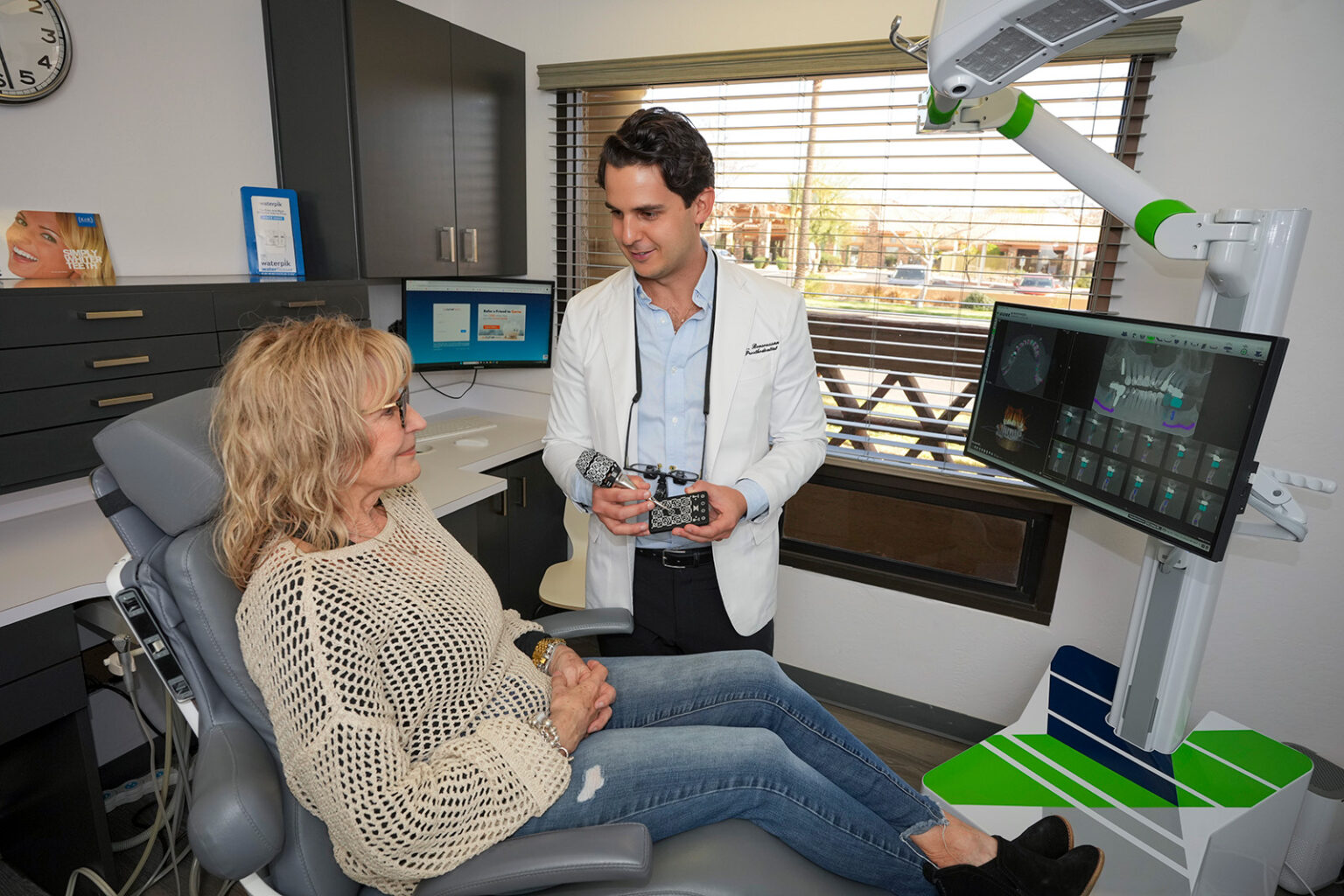
Effective Treatment for Dental Implant Complications
If you are suffering with a problem with one or more of your dental implants, we can help you. Generally, dental implant complications occur due to faulty original planning and implant surgery, insufficient bone or poor oral hygiene.
We assess causes, stabilize symptoms, and create a targeted plan to restore function, comfort, and long-term implant health and stability.
Here are some common complications we encounter:
Dr. Bensoussan will examine your teeth and implants and provide a treatment plan to fix the issues.
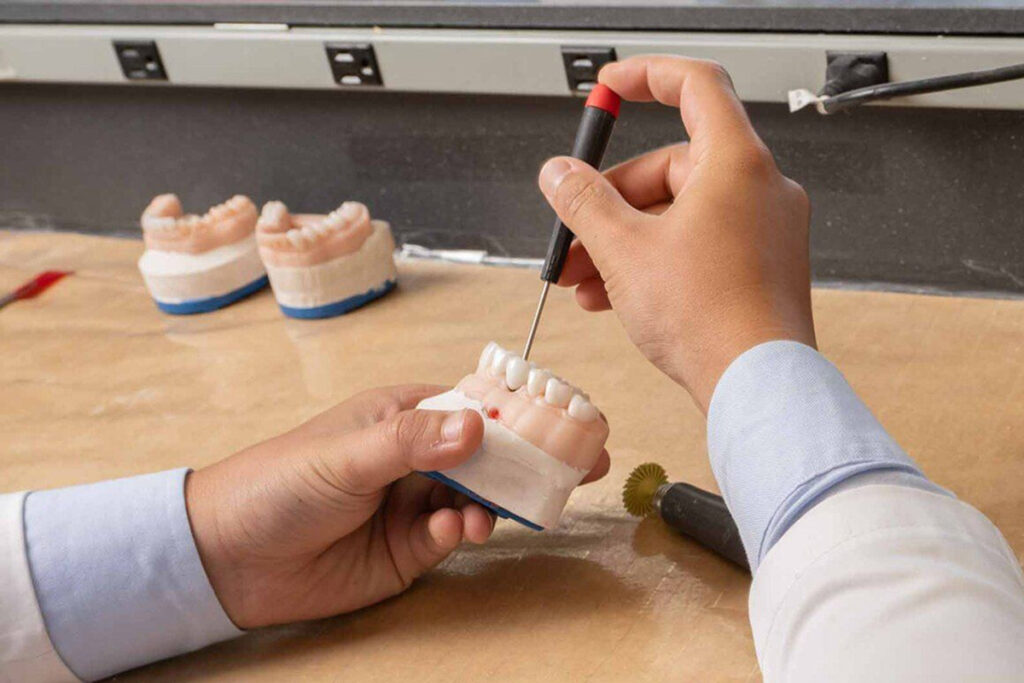
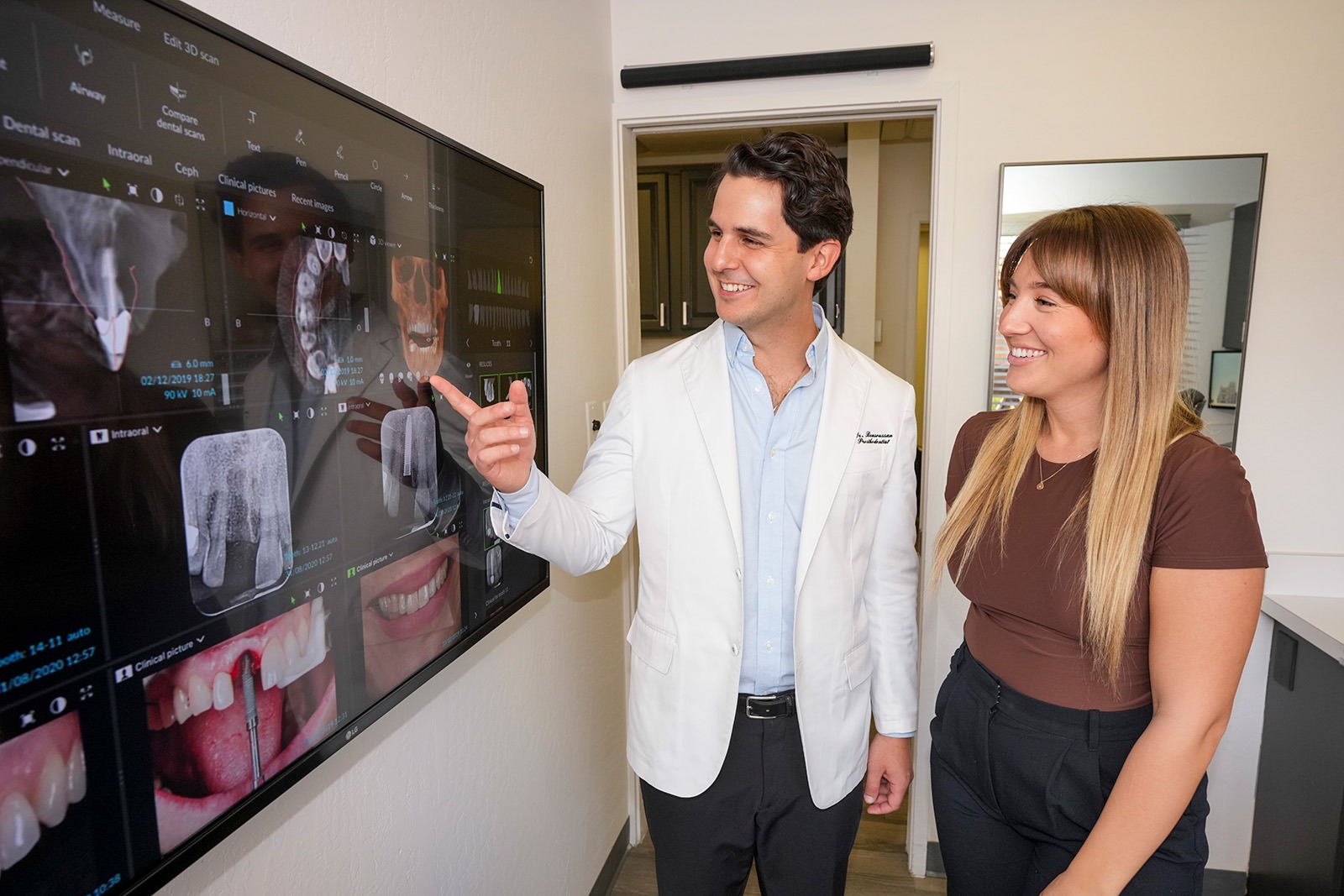
Causes of Complications
Dental implant complications can be attributed to various factors:
- Biological — Poor oral hygiene, smoking, gum disease, systemic diseases (diabetes, etc), certain medications, and inadequate post-surgical care.
- Structural — Insufficient bone density or volume, implant malposition, or prosthetic overload from biting forces.
- Dentist — Surgical errors, improper implant selection, inadequate treatment planning, or lack of proper follow-up maintenance.
Long-Term Effects
When complications occur, they affect the implant’s function, aesthetics, and overall oral health. Complications such as implant failure, peri-implantitis (inflammation around the implant), bone loss, gum recession, infection, nerve damage, sinus issues, fractured components, and compromised bite alignment can lead to discomfort, difficulty chewing, and aesthetic concerns. If left untreated, these complications can result in the loss of the dental implant and surrounding supporting structures, requiring additional treatments, potential additional costs, longer recovery times, and further corrective procedures.
Treatment Solutions
Fortunately, there are treatment solutions available for dental implant complications. The specific treatment approach depends on the nature and severity of the complication. Through personalized treatment plans, Dr. Bensoussan can identify appropriate solutions to resolve complications and restore the health and function of your dental implant.
In cases of peri-implantitis, for example, thorough cleaning of the implant surface, antimicrobial therapy, and bone grafting may be recommended to eliminate infection and promote healing. Surgical interventions such as bone grafting or sinus lift procedures may also be utilized to address inadequate bone volume or density. In more severe cases, implant removal and replacement may be necessary.
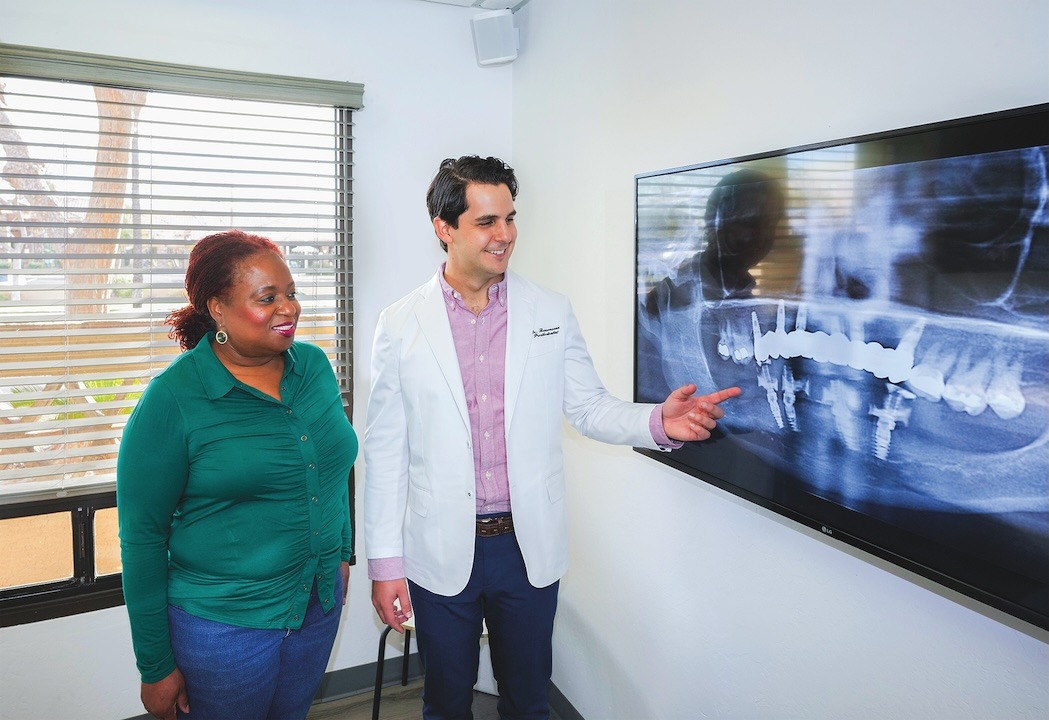
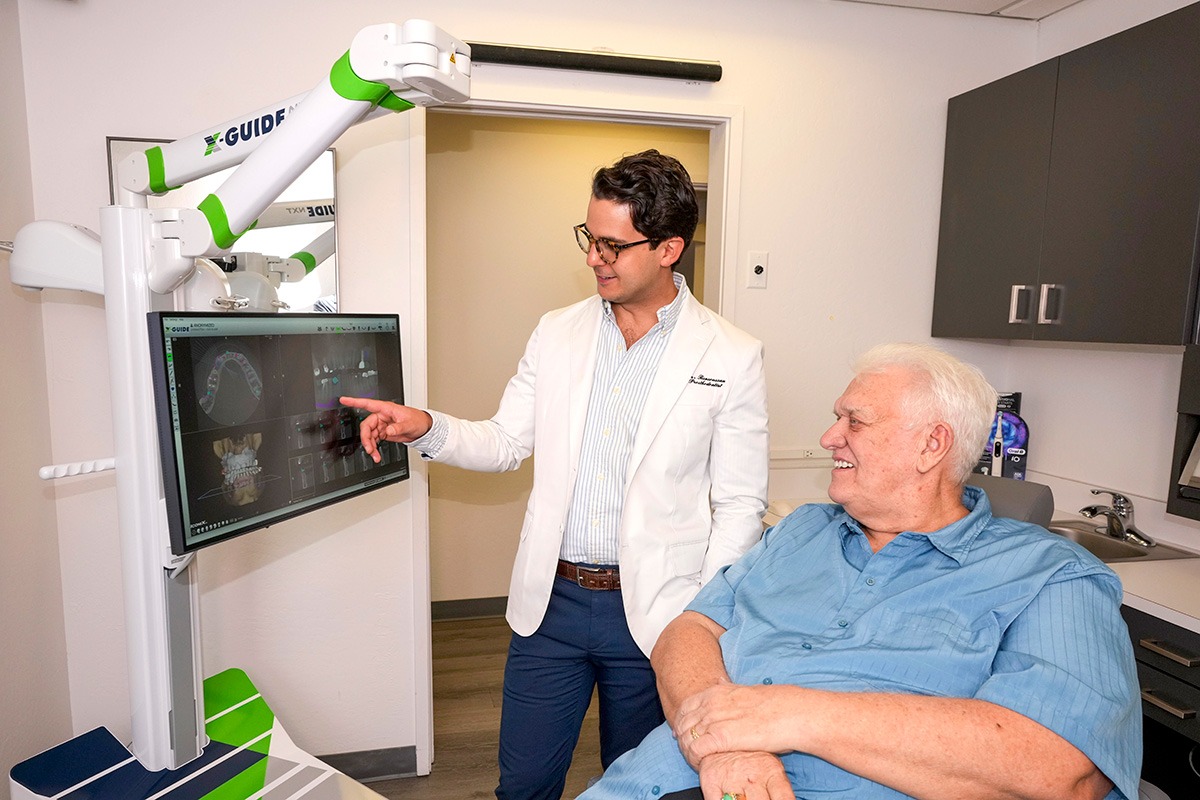
How to Avoid Dental Implant Complications
Dr. Bensoussan is a very experienced implant surgeon and plans surgeries very carefully to ensure they have a successful, long-lasting outcome. During surgery he uses a 3D guided navigation system that gives him a real-time view of your surgery and helps him guide the implant into its correct position, depth and angle. He also plans the the shape and position of the teeth attached to your implant to make sure that they will come together correctly and not cause teeth grinding, chipping and wear.
He will give you post-operative instructions and instructions for at-home care to keep your implants healthy. It’s important also to attend regular dental check-ups.

